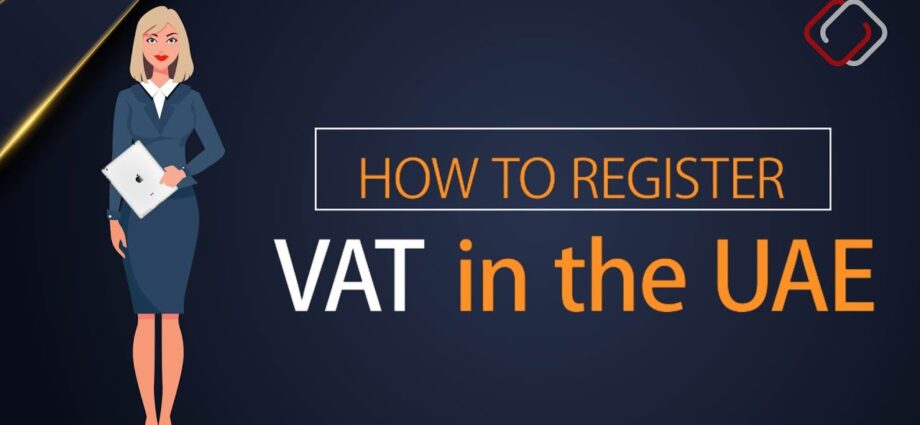Is it true that you are thinking about setting up a business in Dubai, Abu Dhabi, or Ajman? Any place you arrangement your business in the UAE, there are enormous business openings anticipating you!
In any case, you should know at this point that each business arrangement in the UAE after January 2018 may need to enlist for Value Added Tax (VAT) – including your business!
Assessment guidelines are infamous for being convoluted and loaded with rules, conditions and exemptions. The exact opposite thing you need to do as you start your UAE VAT Registration independent venture is to be diverted by charge consistence issues. More regrettable, you would prefer not to be punished for abusing the assessment law!
So what would it be advisable for you to do?
We will help you remove the mystery from the Value Added Tax (VAT.) This article discloses to business visionaries, entrepreneurs and supervisors the basic realities of VAT in plain English.
We additionally give you a bit by bit plan on the best way to deal with your VAT consistence. We cover such significant themes as new business VAT enlistment and VAT enrollment limit, among others.
Section 1: Why Should You Consider VAT Registration Now?
You may be pondering, “For what reason should I mess with Value Added Tax (VAT) enlistment now?” After all, I’m simply beginning my independent venture.
Indeed, there are really various reasons why another organization ought to think about VAT Registration.
To begin with, you may have just met the enlistment requirements(check the prerequisite standards underneath). In the event that not, at that point you may need to enlist soon which could make you scramble to maintain a strategic distance from punishments
Second, there are punishments involved. The last thing you need as an individual beginning another business is to be punished for resistance. It is exorbitant, diverting and discouraging for your staff.
I’m not simply looking at being punished for late enlistment, yet in addition for abusing a wide range of different standards (there are many). Taking the time presently to acquaint your staff with VAT Registration permits you to keep away from undesirable amazements later.
Third, inability to consider VAT Registration could influence your business reputation.At this point, you are likely cheerful of getting agreements and offering to a wide range of huge and acclaimed organizations, correct?
Those organizations will approach you for your organization’s VAT Registration number and testament. It will hurt your picture on the off chance that you disclose to them you don’t have one yet.
You may not be able to enlist now on the off chance that you don’t meet the VAT Registration limit. In any case, intentional VAT Registration is accessible, and you might need to commit and enlist when you qualify.
Part 2: What is Value Added Tax (VAT)? New Business VAT Explained
To more readily clarify what Value Added Tax (VAT) really is, we should investigate how it works. There are three fundamental advances:
Stage 1: Collect VAT
At the point when you sell items and administrations, add the material expense rate to your receipt and gather the duty from your clients. This expense is known as the yield charge.
Stage 2: Pay VAT
At the point when you purchase items and administrations from providers or specialist co-ops, anticipate that them should charge you VAT Registration. It will be referenced on their solicitations.
Track that charge. It is called input charge.
Stage 3: Make Scheduled VAT Payments
Consistently or quarter (as dictated by the FTA) you will be needed to record and make good on your charges.
What amount would it be a good idea for you to pay? You should pay your absolute assessment due, which is controlled by this straightforward recipe:
Due assessment = Output charge – input charge
In the event that you gather short of what you pay, at that point you will get a tax reduction.
A couple of things to remember:
To start with, your info expense should be determined for buys you make for business reasons and for buys identified with furnishing your clients with available products and ventures.
You can’t guarantee the VAT Registration you pay on the organization yearly gathering as information charge.
Second, as you see from the referenced advances, VAT Registration is borne by the last buyer of the item and administrations you sell. As a business, you don’t bear the duty costs. You only go about as a gatherer of charges for the duty specialists.
Having said that, you will cause “consistence” costs. You should represent the assortment, installment, handling and recording of assessments. They add up and your organization should pay for them.
Third, realize that VAT Registration isn’t a duty on benefits or pay. Organizations don’t need to pay charges on their benefits, and representatives don’t need to pay charges on their wages.
Yet, pause! What amount would it be a good idea for you to charge?
There are three assessment classes. Each rate applies to a gathering of items and administrations:
VAT Exempt items and administrations: As the name proposes, VAT excluded items and administrations are absolved for VAT. You don’t charge VAT, and you don’t compute it on your receipt.
Zero evaluated items and services:Products and administrations assigned as zero appraised, will be charged VAT, however at 0%. On your VAT receipt, you should show the VAT for such items and administrations as zero.
Standard appraised items and services:Whatever isn’t absolved or zero evaluated is charged at the standard VAT rate, which is right now set at 5%.
The accompanying graph shows what items fall under the excluded and zero appraised classifications.
